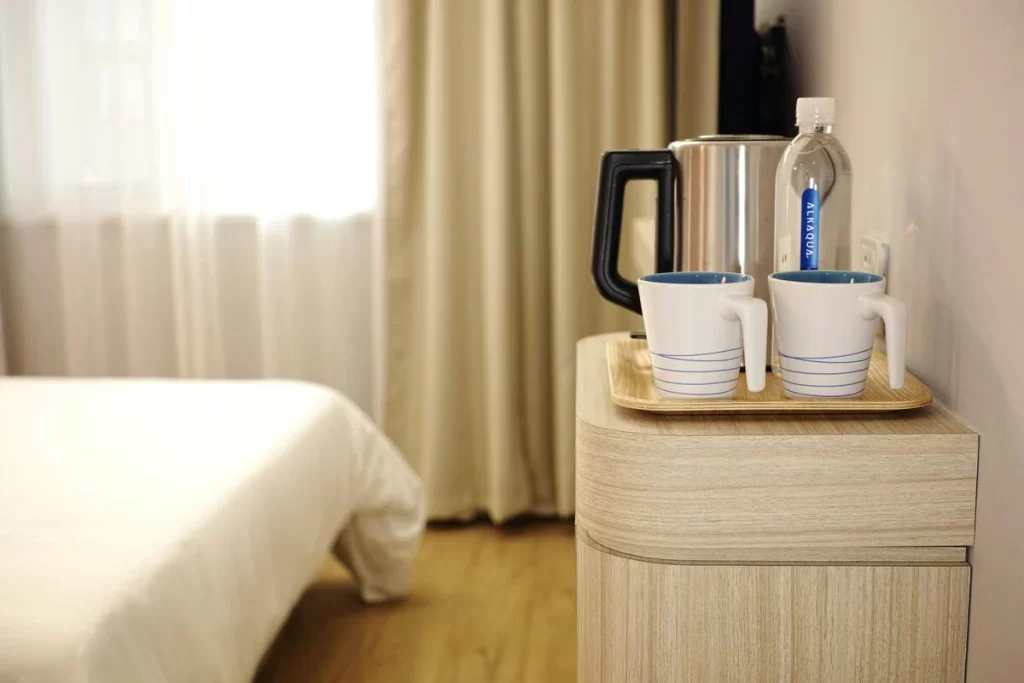The “Airbnb vs hotel” debate continues to shape the future of travel. For property managers—whether managing vacation rentals or hotel rooms—understanding how travelers perceive each option is crucial. Both accommodation types offer distinct advantages, and aligning your messaging with guest expectations can be the key to winning more bookings.
In this article, we’ll explore the main differences between Airbnbs and hotels, the pros and cons of each from a guest’s perspective, and how property managers can use these insights to create more effective guest communication strategies.
Airbnb vs Hotel: What Are Guests Really Looking For?
Hotels: Consistency and Convenience
Hotels continue to lead in terms of brand recognition and reliability. According to a recent Savanta survey, 68% of travelers prefer staying at hotels, thanks to standardized services like:
- Daily housekeeping
- On-site restaurants and room service
- 24/7 front desk and security
- Loyalty programs
Hotels are also typically better suited for business travelers and short stays, offering predictability and convenience over personalization.
Airbnb: Flexibility and Local Flavor
On the other hand, Airbnb appeals to travelers seeking a more local, immersive experience. Vacation rentals often provide:
- Larger spaces ideal for families or groups
- Access to kitchens and laundry facilities
- Unique and personalized stays
- A sense of home, often at lower nightly rates
However, Airbnb experiences can vary significantly depending on the host and property. Guests appreciate authenticity—but also expect consistency and safety.
Airbnb vs Hotel – Pros and Cons for the Modern Traveler
The Pros of Hotels
- Professionalism and service standards: Hotels are staffed by trained professionals and typically offer high-quality service.
- Security: On-site security and staff make many guests feel safer.
- Guest support: Immediate help is usually available for any issue.
The Cons of Hotels
- Less space and flexibility: Hotel rooms may feel cramped, especially for longer stays.
- Additional fees: Guests often face hidden costs like resort fees or paid Wi-Fi.
- Limited personalization: Experiences are more uniform and less tailored to the individual.
The Pros of Airbnbs
- Better value for longer stays: Larger groups can save money by sharing a property.
- Unique stays: From beach houses to cabins, Airbnb offers diversity.
- Local immersion: Guests often feel more connected to the destination.
The Cons of Airbnbs
- Inconsistent quality: Unlike hotels, Airbnb properties vary widely in cleanliness and amenities.
- Fewer services: No daily cleaning, breakfast, or concierge unless provided by the host.
- Risk of cancellation: Some travelers have faced last-minute cancellations.
Read more about:
Sustainability in Travel and Tourism: Trends & Insights 2025
Understanding and Improving Your Guest Satisfaction Score
How to Communicate Value, Regardless of Your Model
Whether you manage hotel rooms or short-term rentals, how you present your offer can influence guest decisions. Here’s how to tailor your messaging:
Highlight the Benefits
- Hotels: Emphasize trust, convenience, and service. Mention check-in ease, 24/7 support, and professional cleaning.
- Airbnb-style rentals: Focus on space, privacy, and authentic experiences. Promote fully equipped kitchens, local recommendations, and extended-stay discounts.
Address Guest Concerns Proactively
- Reassure guests about safety, cleaning protocols, and support availability.
- Clarify all fees upfront to avoid negative surprises.
- Use visuals and guest reviews to validate claims.
Use Technology to Build Trust
Platforms like Chekin help standardize guest experiences in both hotels and vacation rentals. With automated check-in, legal compliance, and integrations for identity verification, managers can offer peace of mind while simplifying operations.
Conclusion: There’s No One-Size-Fits-All
In the Airbnb vs hotel debate, the right choice depends on the guest’s priorities—be it comfort, personalization, price, or security. For property managers, the goal is to clearly communicate the value of your offer in relation to those expectations.
Understanding your audience and being transparent about your services is more effective than trying to “win” the comparison. Whether you’re running a boutique hotel or managing urban apartments, strategic messaging and technology can set you apart in a crowded market.
If you are a tourist accommodation or hotel owner and you don’t use Chekin yet. Here is the solution to save 87% of your time and earn more with every booking
Free trial for 14 days. No credit card required!
You may also be interested in:
Types of Tourism: A Guide for Vacation Rental Managers
Modern Guest: How to Meet the Expectations of Today’s Travelers






